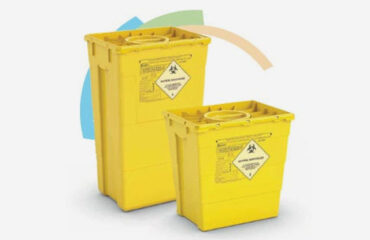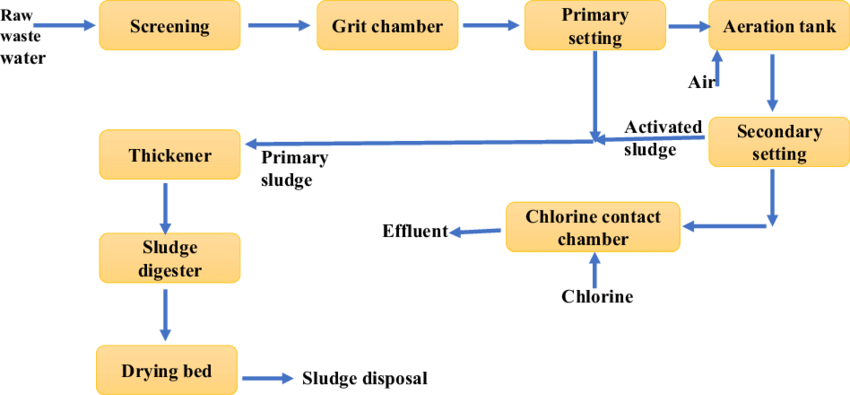The Ultimate Guide To Reclaim Waste
The Ultimate Guide To Reclaim Waste
Blog Article
10 Simple Techniques For Reclaim Waste
Table of ContentsA Biased View of Reclaim WasteThe 9-Minute Rule for Reclaim WasteReclaim Waste Things To Know Before You BuyExcitement About Reclaim WasteIndicators on Reclaim Waste You Need To Know
Explore the types, occurrences, and forms of fluid waste. Residential sewage waste describes the waste and items from a property sewage-disposal tank. This sort of waste is produced by humans in residences, colleges, and various other buildings. This only includes sewage-disposal tanks that have a drainpipe area. The proper management and disposal of domestic sewer waste require liquid waste to be transferred to a sewer treatment plant where the appropriate techniques and equipment are related to detoxify and take care of waste.
Business waste frequently includes prospective threats, such as flammable products or a mixture of fluid and solid waste items, and requires an advanced and detailed disposal procedure. The disposal of commercial waste typically involves the purification of waste prior to transportation to ensure safe and correct disposal. Hazardous waste is produced from by-products and overflow of industrial processes and manufacturing.
This type of waste can not utilize the exact same sewer management transportation or processes as septic or commercial liquids. The industrial waste administration process needs the evaluation and screening of liquid waste before it undertakes the disposal procedure (liquid waste disposal melbourne). Drainage waste is the fluid waste that comes from overflow and excess stormwater in very inhabited locations or cities
Runoff waste can trigger contamination and flooding if not handled effectively. Discover more concerning drain cleansing and waste management. Making sure appropriate waste management can stop calamities and lower ecological damage. Both individuals in household setups and professionals in business or manufacturing markets can take advantage of recognizing the processes and regulations of fluid waste management.
Some Ideas on Reclaim Waste You Need To Know
Get in touch with PROS Services today to find out about our waste management and disposal solutions and the proper means to take care of the fluid waste you create.
(https://soundcloud.com/reclaimwaste1)
Do you understand what takes place to your water when you end, flush the bathroom or drain the cleaning equipment? No? Well, it deserves knowing. This supposed 'wastewater' is not just an important source yet, after therapy, will certainly be launched to our land, rivers or the ocean. Utilized water from bathrooms, showers, baths, kitchen sinks, washings and commercial processes is called wastewater.

water made use of to cool down equipment or tidy plant and tools). Stormwater, a kind of wastewater, is overflow that moves from agricultural and city areas such as roofs, parks, yards, roads, courses and gutters right into stormwater drains pipes, after rain. Stormwater flows without treatment directly to neighborhood creeks or rivers, ultimately getting to go to my site the ocean.
Some Known Details About Reclaim Waste
In Queensland, a lot of wastewater is dealt with at sewer treatment plants. Wastewater is transferred from domestic or commercial sites via a system of sewers and pump stations, referred to as sewerage reticulation, to a sewer treatment plant. Local federal governments develop, maintain and operate most sewer treatment plants. Operators are accredited under the Environmental Management Act 1994 to release cured wastewater at an appropriate ecological standard into rivers.
The Division of Natural Resources advises city governments about handling, operating and keeping sewerage systems and therapy plants. In unsewered locations, regional governments may call for householders to install individual or household sewage treatment systems to treat domestic wastewater from commodes, cooking areas, washrooms and washings. The Department of Natural Resources authorises making use of home systems when they are verified to be effective.
A lot of stormwater gets no treatment. In some brand-new neighborhoods, treatment of some stormwater to get rid of clutter, sand and gravel has started using gross pollutant catches. Wastewater treatment occurs in four stages: Removes strong issue. Bigger solids, such as plastics and various other objects mistakenly discharged to sewage systems, are gotten rid of when wastewater is gone through displays.
Wastewater after that moves right into large tanks where solids clear up and are removed as sludge. Oil and scum are skimmed from the surface. Makes use of little living organisms knows as micro-organisms to break down and remove staying dissolved wastes and great bits. Micro-organisms and wastes are integrated in the sludge. Gets rid of nitrogen and phosphorus nutrients that could cause algal flowers in our rivers and threaten aquatic life.
Reclaim Waste Things To Know Before You Get This
Nutrient elimination is not offered at all sewer therapy plants because it needs expensive specialist tools. It is ending up being much more usual in Queensland. Clear liquid effluent generated after therapy may still include disease-causing micro-organisms. If this effluent is released into waterways such as rivers or the sea, the micro-organisms will at some point pass away out.

Most wastewater moves right into the sewerage system. Under the Act, local federal governments carry out approvals and permits for eco relevant tasks (Ages) entailing wastewater launches that may have a regional effect.
The Best Guide To Reclaim Waste
Or else, examples are considered lab evaluation. Usually several tests are needed to develop the degrees of each of the various toxins such as oils, hefty metals and chemicals in water. Tracking offers valid info concerning water quality and can validate that licence problems are being met. The info obtained through monitoring provides the basis for making water top quality decisions.
Report this page